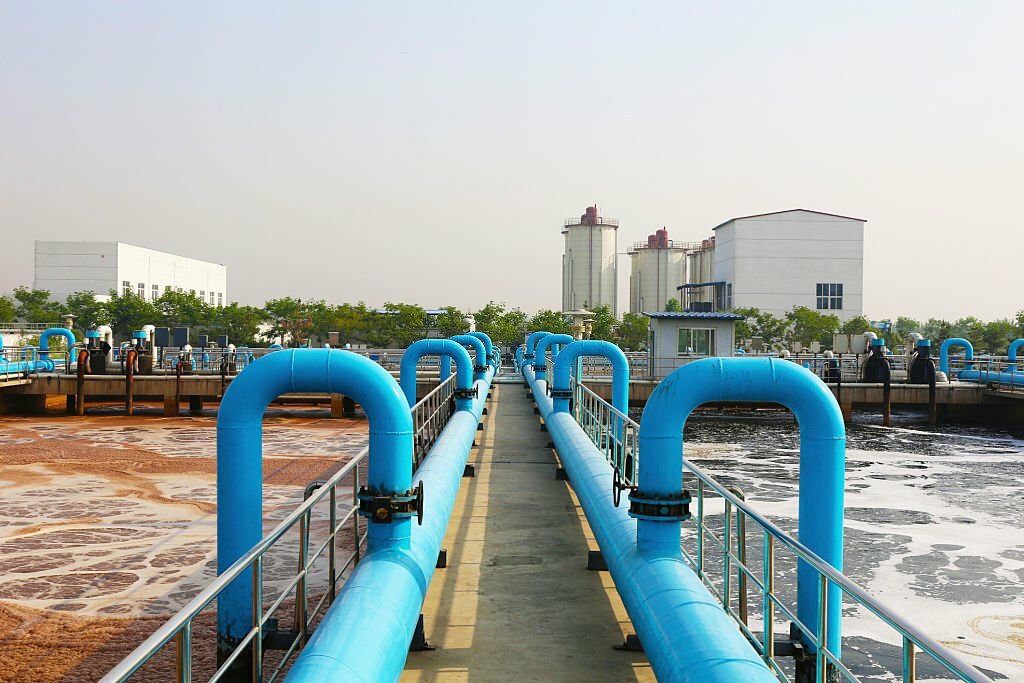How to Reduce Operational Costs in a Sewage Treatment Plant
Managing a sewage treatment plant (STP) involves ongoing costs related to energy, manpower, chemicals, maintenance, and regulatory compliance. While these...

Managing a sewage treatment plant (STP) involves ongoing costs related to energy, manpower, chemicals, maintenance, and regulatory compliance. While these expenses are necessary for smooth and effective wastewater treatment, excessive or inefficient operations can put a serious dent in your budget. Fortunately, there are several proven strategies to reduce operational costs in a sewage treatment plant without compromising on performance or compliance.
In this blog, we’ll explore key areas where cost savings can be achieved and provide actionable insights for optimizing your STP.
1. Adopt Energy-Efficient Equipment
One of the biggest cost drivers in sewage treatment plants is electricity consumption, particularly for processes like aeration, pumping, and sludge handling.
How to Save:
- Upgrade to high-efficiency motors and pumps with variable frequency drives (VFDs) that adjust energy usage based on demand.
- Use fine-bubble diffusers in the aeration system. They offer greater oxygen transfer efficiency than coarse bubbles.
- Automate aeration control using dissolved oxygen (DO) sensors to avoid unnecessary operation and energy wastage.
2. Automate and Monitor Operations
Modern STPs benefit greatly from automation and data-driven management. Intelligent control systems can optimize chemical dosing, monitor real-time flow rates, and detect faults early.
Benefits:
- Minimizes human error
- Reduces overuse of chemicals and power
- Alerts you to potential system failures before they escalate
Investing in SCADA (Supervisory Control and Data Acquisition) systems or IoT-based platforms might seem costly at first, but the long-term reduction in inefficiencies more than makes up for it.
3. Optimize Chemical Usage
Chemicals used for pH control, coagulation, disinfection, or odor management can add significantly to your monthly budget.
Smart Practices:
- Conduct regular jar tests to determine the minimum effective chemical dose.
- Store chemicals properly to avoid spoilage and unnecessary purchases.
- Use automated dosing systems that adjust amounts based on inflow quality.
Switching to bio-enzymatic treatments in certain applications may also reduce chemical dependency and long-term costs.
4. Implement Scheduled Preventive Maintenance
Frequent breakdowns, leakages, and equipment failure not only increase costs but also affect STP performance. Preventive maintenance ensures optimal function and reduces unplanned downtime.
What to Do:
- Create a maintenance calendar covering pumps, motors, valves, blowers, membranes, and tanks.
- Inspect for wear and tear, corrosion, or microbial fouling regularly.
- Clean and replace filters, nozzles, and diffusers as per manufacturer guidelines.
Routine maintenance is always cheaper than emergency repairs or component replacements.
5. Reduce Sludge Generation and Disposal Costs
Sludge treatment and disposal often account for a significant portion of operating expenses. Reducing the volume of sludge not only lowers hauling and treatment costs but also limits your environmental footprint.
Cost-Effective Methods:
- Use sludge digesters to reduce volume through anaerobic or aerobic processes.
- Incorporate dewatering equipment like filter presses or centrifuges to minimize transport costs.
- Consider composting or reuse options (such as for land application or energy generation) if permitted locally.
6. Recycle and Reuse Treated Water
Reusing treated sewage water for non-potable applications (gardening, flushing, HVAC systems, etc.) helps offset water procurement costs for commercial and residential users.
Reuse Applications:
- Landscape irrigation
- Industrial cooling
- Construction activities
This dual benefit of cost saving + water conservation is especially valuable in water-scarce regions or for organizations aiming to improve ESG compliance.
7. Train and Upskill Your Operators
Untrained personnel can lead to overuse of resources or mismanagement of operations. Investing in training ensures your team understands how to run systems efficiently.
Key Areas to Train:
- Equipment handling
- Emergency protocols
- Chemical dosing and safety
- Troubleshooting and maintenance routines
A well-trained team contributes directly to smoother, more cost-effective plant operations.
8. Upgrade Obsolete Technology
Aging infrastructure and outdated technology often lead to higher costs due to frequent repairs and inefficiency.
Consider Upgrading:
- Replace old pumps and motors with energy-efficient models
- Shift to MBR (Membrane Bioreactor) or SBR (Sequential Batch Reactor) technology if suitable
- Use smart flow meters and level sensors for real-time insights
While there is an upfront investment, modern STP technologies offer better performance, reduced energy usage, and lower maintenance.
9. Track Key Performance Indicators (KPIs)
Monitoring your STP’s performance using KPIs helps you identify areas of excess cost or inefficiency quickly.
Common KPIs:
- Power consumption per KL treated
- Chemical usage per month
- Sludge generation rates
- Effluent quality compliance
- Downtime incidents
Use these insights to make data-backed decisions and plan improvements that align with cost reduction goals.
10. Use Renewable Energy Sources
For large-scale plants, integrating solar panels or biogas systems can significantly reduce long-term electricity bills.
- Solar PV systems can power pumps and lighting during the day.
- Biogas produced from anaerobic sludge digestion can be used to generate electricity or heat.
These options not only cut energy costs but also promote sustainability and may qualify for green incentives or tax benefits.
Final Thoughts
Reducing operational costs in a sewage treatment plant is not about cutting corners but about working smarter, not harder. From upgrading technology and optimizing processes to training staff and using automation, there are numerous ways to make your STP more efficient and cost-effective.
At Cleantech Water, we specialize in delivering advanced sewage treatment solutions that are energy-efficient, environmentally friendly, and economically sustainable. Whether you’re managing a new project or looking to retrofit an existing plant, our experts can help you streamline operations and reduce your bottom line.





